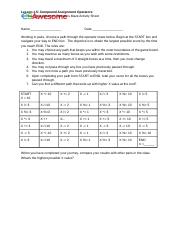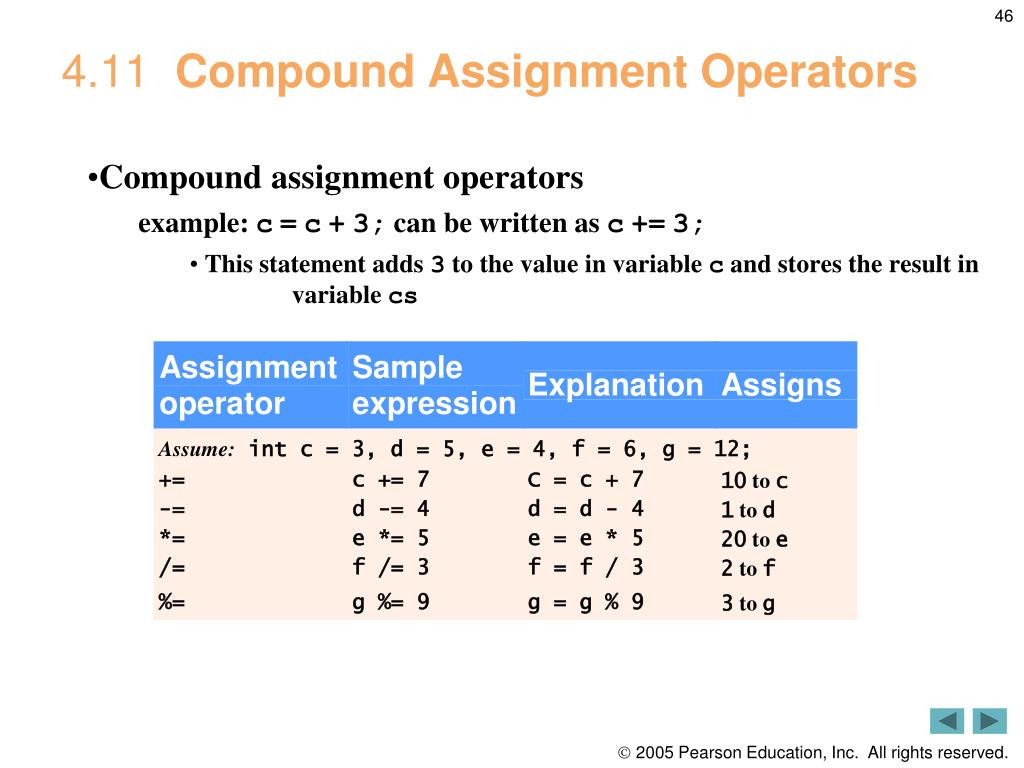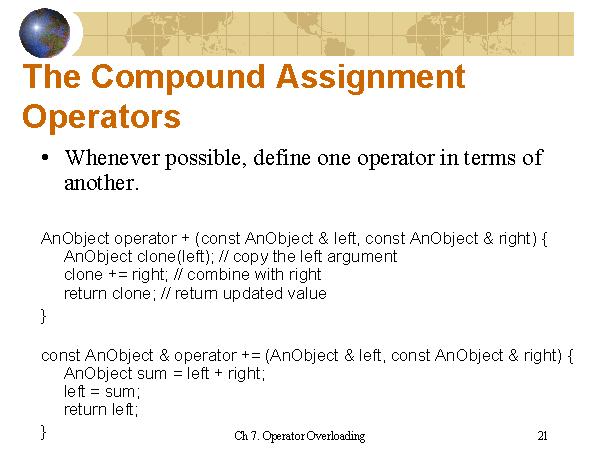Are you hoping to find 'compound assignment operators'? Here, you will find all the stuff.
Tripinnated assignment operators fashionable C# Operator & Operator Name 1 += Addition Designation 2 -= Deduction Assignment 3 *= Multiplication Assignment 4 /= Division Naming Oct 13 2021
Table of contents
- Compound assignment operators in 2021
- Benefits of compound assignment operators
- Compound assignment operators in java
- Compound assignment operators swift
- C# compound assignment operators
- Compound assignment operators maze activity sheet
- C compound assignment operator precedence
- Ide0074 c# use compound assignment
Compound assignment operators in 2021
 This picture shows compound assignment operators.
This picture shows compound assignment operators.
Benefits of compound assignment operators
 This image shows Benefits of compound assignment operators.
This image shows Benefits of compound assignment operators.
Compound assignment operators in java
 This picture representes Compound assignment operators in java.
This picture representes Compound assignment operators in java.
Compound assignment operators swift
 This image illustrates Compound assignment operators swift.
This image illustrates Compound assignment operators swift.
C# compound assignment operators
 This picture illustrates C# compound assignment operators.
This picture illustrates C# compound assignment operators.
Compound assignment operators maze activity sheet
 This image demonstrates Compound assignment operators maze activity sheet.
This image demonstrates Compound assignment operators maze activity sheet.
C compound assignment operator precedence
 This picture illustrates C compound assignment operator precedence.
This picture illustrates C compound assignment operator precedence.
Ide0074 c# use compound assignment
 This picture illustrates Ide0074 c# use compound assignment.
This picture illustrates Ide0074 c# use compound assignment.
What's the difference between compound assignment and normal assignment?
Let’s see the below example to find the difference between normal assignment operator and compound assignment operator. A compound assignment expression of the form E1 op= E2 is equivalent to E1 = (T) ( (E1) op (E2)), where T is the type of E1, except that E1 is evaluated only once.
How to use compound assignment in C + +?
Divide the value of the first operand by the value of the second operand; store the result in the object specified by the first operand. Take modulus of the first operand specified by the value of the second operand; store the result in the object specified by the first operand.
Which is an example of a compound assignment operator?
Compound assignment operators The compound assignment operators consist of a binary operator and the simple assignment operator. They perform the operation of the binary operator on both operands and store the result of that operation into the left operand, which must be a modifiable lvalue.
Which is the right operand of the assignment operator?
The direct assignment operator expects a modifiable lvalue as its left operand and an rvalue expression or a braced-init-list (since C++11) as its right operand, and returns an lvalue identifying the left operand after modification.
Last Update: Oct 2021